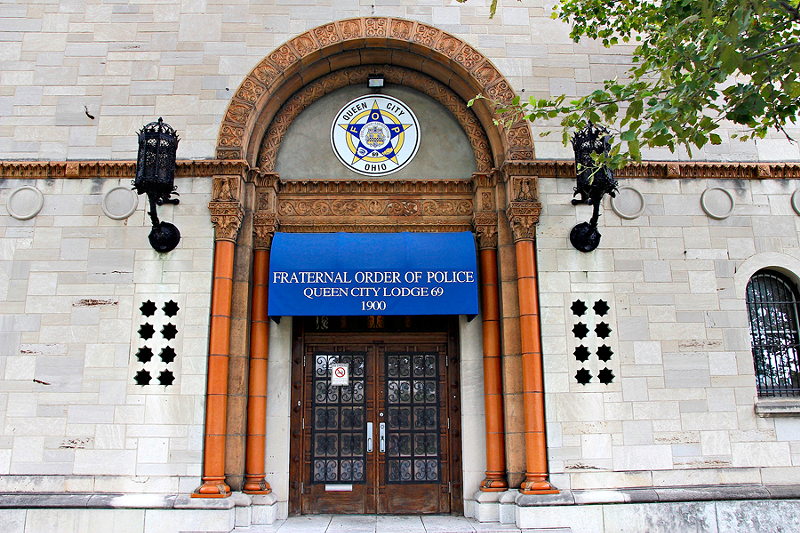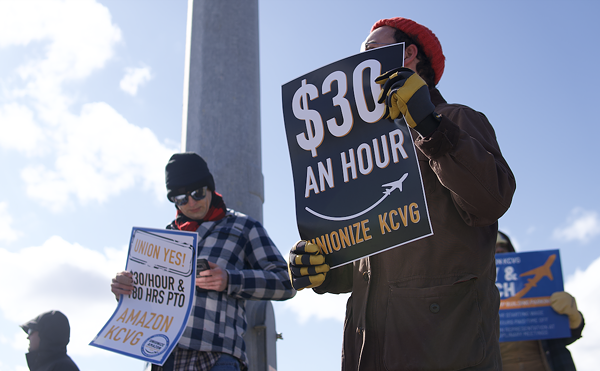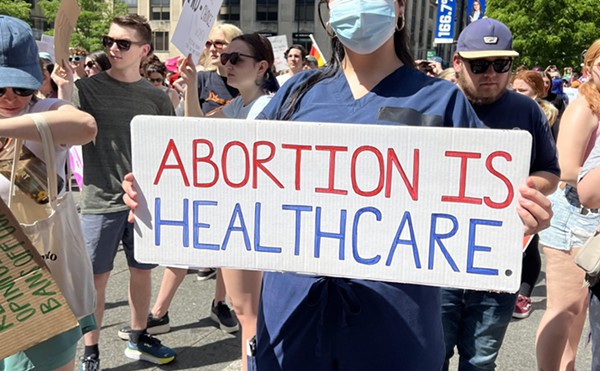A chain of events stemming from the Ray Tensing trial has put efforts to strengthen the city’s much-lauded 15-year-old police reform efforts on thin ice with one of its major players — Fraternal Order of Police Queen City Lodge 69.
The controversy has the potential to hobble the historic Collaborative Agreement that has made Cincinnati a national touchstone for police reforms. It could also have political ramifications.
The FOP represents the more than 1,000 officers serving with the Cincinnati Police Department. On June 2, FOP president Dan Hils stood at City Hall with police reform activists like Iris Roley, as well as CPD Chief Eliot Isaac, Mayor John Cranley, City Manager Harry Black and others, to announce a refresh of the Collaborative. But by July 24, FOP members had voted to withdraw from those efforts.
CPD spokesman Eric Frantz stressed the department’s commitment to the refresh, but did not elaborate on CityBeat questions about ways the FOP’s exit could hamper those efforts. But another police group representing CPD’s roughly 300 black officers, The Sentinels, say the FOP’s actions put the Collaborative at risk.
Sentinels President Eddie Hawkins has slammed the FOP’s refusal to cooperate in the refresh.
“Collaborative policing has worked in Cincinnati and it is now in danger,” he wrote in an open letter in which he pointed out that many of the FOP members who voted were retired officers. “All of us should be concerned — officers and citizens alike.”
Hils says he’s working with the FOP’s executive committee to get another vote on rejoining the refresh efforts, but doesn’t know when — or if — that will happen.
“I think the process is only legitimate if we are at the table,” Hils told CityBeat in an email. “Hopefully we can find our way back there.”
Cincinnati has received big plaudits for the 2002 Collaborative Agreement, a set of police reform efforts put in place under federal court guidance. The agreement was hammered out by the city, its police department, activists like Roley of the Black United Front and civil rights attorney Al Gerhardstein. It arose after racially charged police shootings here, including the 2001 police shooting of unarmed 19-year-old Timothy Thomas by Cincinnati Police officer Stephen Roach. That shooting caused days of unrest in Over-the-Rhine.
The agreement steered the Cincinnati Police Department toward more community-centered police techniques and created new oversight mechanisms for the department, including a Citizen Complaint Authority. The New York Times, The Atlantic and other high-profile publications have applauded the effort, especially as police accountability issues tied to race have exploded into the public consciousness again.
The refresh, according to officials, will measure the progress of the Collaborative and attempt to build upon it. It will also look to ramp up efforts in the community, the city says, including boosting the Citizen Complaint Authority’s role in engaging community members. Those efforts will be monitored by a team of experts, which will deliver a set of action steps the city should take to continue improving policing in Cincinnati.
The CCA and other parts of the Collaborative have struggled with funding cuts, leadership changes and other impediments since federal court oversight of the program ended in 2008. That’s caused consternation from activists.
“Sixteen years later, we have seen improvements in public safety in our city, but there is still much work to do,” Roley said when the refresh was announced. “This evaluation of the Collaborative Agreement will tell us what work needs to be done.”
Policing data shows that CPD has improved in some aspects since 2001 but that large racial disparities remain in police stops, arrests and officer-involved shootings. The department also hasn’t become much more diverse.
Use of force by CPD has dropped nearly 70 percent in the past 15 years. But disparities in arrests and police shootings have proven stubborn. Seventy-seven percent of felony arrestees were black in 2014 — the same as 2001. And since 2010, 28 black individuals have been involved in officer-involved shootings, while seven white individuals have been involved in similar incidents. The city’s population is 46 percent black.
The FOP’s vote to withdraw from refresh efforts stems from criticism by Hamilton County Prosecutors against CPD Sgt. Shannon Heine during the Tensing trial.
During his closing statement, Hamilton County Prosecutor Seth Tieger accused Heine of treating Tensing with kid gloves and suggested she might be part of a “good old boys network” of cops protecting other cops.
The FOP was not enthused by this suggestion.
“I hope that Mr. Tieger realizes the recklessness of his suggestions about the integrity of CPD Homicide and the work they did on this difficult case,” Hils wrote in a statement following Tieger’s closing arguments. “I pray that his statements do not inflame more hostility against police.”
Last week, CPD said it was investigating a threat made against Hils after he wrote about Black Lives Matter on Facebook. The source and specific nature of that threat have not been released. BLM organizers say the group hasn’t made any threats and doesn’t advocate for harm to anyone.
Some other CPD officers echoed Hils’ sentiments.
“Shame on you Mr. Tieger,” CPD officer Michael Ammann wrote in an open letter to the prosecutor. “I understand you have a difficult job to do just like us cops, but for you to question Shannon Heine of her integrity in open court is unprofessional.”
A CPD investigation found Heine didn’t commit any wrongdoing during her testimony. Roley and Gerhardstein filed with the CCA asking it to look into Heine’s treatment of Tensing during her investigation into DuBose’s death. Shortly after, the FOP voted to leave the refresh efforts.
Even before the recent rift over Tensing, Hils and the FOP had a tense relationship with police accountability efforts. In January, Hils posted a picture of himself to Facebook standing in the dark. One of Hils’ fists is balled up around a lighter. In his other hand, he holds a burning copy of The Cincinnati Enquirer that featured an investigative story on police use of force.
“Another story designed to create mistrust between community and police,” Hils wrote.
Hils has also been critical of the Black Lives Matter movement, including Cincinnati’s BLM group, which is independent from other chapters. Last week, he made a post to pro-police Facebook group Support the Blue suggesting BLM focus on the 32 unsolved murders of black Cincinnatians this year and pointed out that none of them involved police. Law enforcement supporters cheered the sentiment — the post received hundreds of likes and shares — but it further inflamed tension between the FOP and the Sentinels.
“To tell black people that they must remain quiet, even if they feel a police-involved shooting is unjustified, until Cincinnati Police solve all cold-case murders is absurd,” Sentinels head Hawkins wrote in his letter.
The situation means that Cincinnati’s two Democratic mayoral contenders, Mayor Cranley and his challenger, Councilwoman Yvette Simpson, must navigate the tensions between advocates for racial justice — a big election year issue — and the city’s police union, a powerful political force in Cincinnati.
Cranley, who pushed through a pay raise for police outside the city’s usual collective bargaining practices and won an endorsement from the FOP, has been fairly quiet following the dismissal of charges against Tensing.
Cranley has actively promoted the refresh of the Collaborative and expressed disappointment in the lack of a conviction for Tensing. The mayor’s office did not reply to a request for comment on the situation between the FOP, the Sentinels, racial justice activists and CPD. City Manager Black released a statement following the FOP’s vote expressing City Hall’s disappointment but promising the refresh would go forward regardless.
Simpson, meanwhile, released a statement praising the work police do and also imploring the FOP to come back to the table.
“The Cincinnati Police Department does an extraordinary job,” Simpson wrote in a statement following the FOP’s vote. “For 15 years, the community’s improved relationship with our police department has come with the full support of the police union, which represents all officers, including the rank-and-file. This is not the time to leave the conversation. I sincerely hope the FOP reconsiders its position and agrees to do what is best for our community and our officers.” ©






